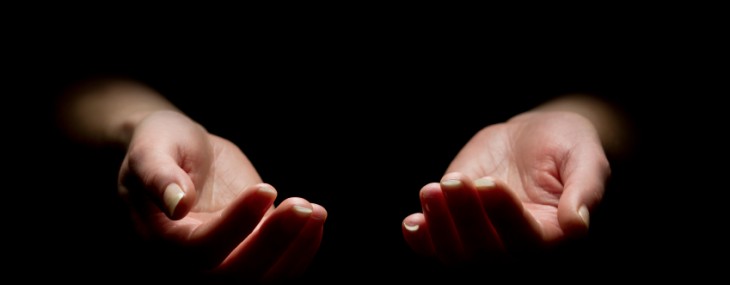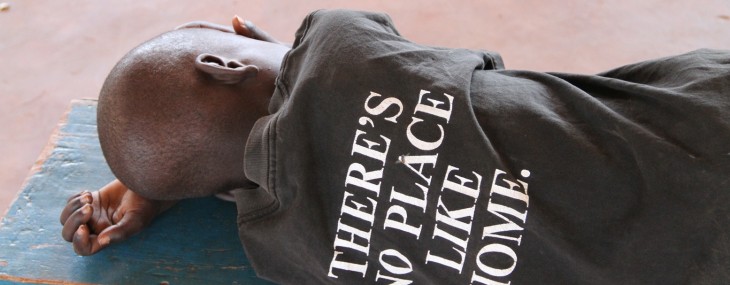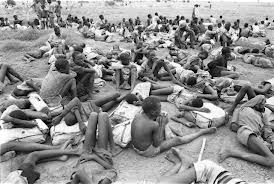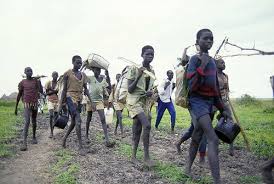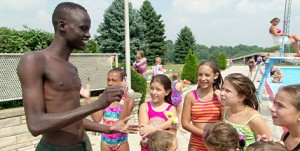Jagged hair framed the haggard face of a thirtyish-looking woman. She wore no makeup. Her bulky pants looked like they belonged to a short, fat man—but matched her XXL gray sweatshirt. She stood by McDonald’s on Main Street.
I stopped to take a second look. The woman held a cardboard sign with four words that have long represented an accepted spectacle across the American landscape of free speech: “Will work for food.”
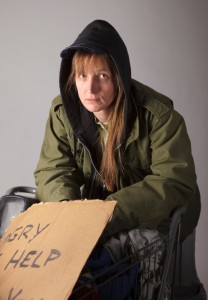 Back in the 1980s, sign-holders in our small town were a new phenomenon. I’d not seen this kind of thing before. The way my heart pounded, you’d have thought I’d just witnessed a car wreck. Who would do that—overcoming personal shame enough to stand out there on public display?
Back in the 1980s, sign-holders in our small town were a new phenomenon. I’d not seen this kind of thing before. The way my heart pounded, you’d have thought I’d just witnessed a car wreck. Who would do that—overcoming personal shame enough to stand out there on public display?
I hurried into McDonald’s and spoke to the assistant manager in chopped sentences.
“There’s a woman…and a sign…she’s in trouble…”
He nodded and politely informed me that the owner had already offered her a job—which she flatly refused. She was hustling far more money with her sign.
In that moment, I grew older and wiser.
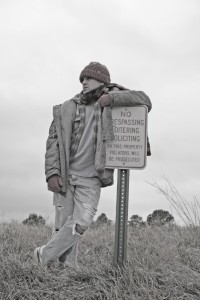 A man in a torn overcoat stood shivering in blinding snow by the grocery store. Who would fake that? His sign said, “Stranded—anything will help.” I bought him some hot soup and a roll from the deli. He seemed thankful and asked for money, but I didn’t have any cash. I returned to do my grocery shopping, but later, as I left the store, I noticed the soup and bread abandoned in the snow. Untouched. Uneaten. He had moved on.
A man in a torn overcoat stood shivering in blinding snow by the grocery store. Who would fake that? His sign said, “Stranded—anything will help.” I bought him some hot soup and a roll from the deli. He seemed thankful and asked for money, but I didn’t have any cash. I returned to do my grocery shopping, but later, as I left the store, I noticed the soup and bread abandoned in the snow. Untouched. Uneaten. He had moved on.
Now I was irritated.
Nearly a decade passed. I continued to struggle with walking or driving by people holding cardboard signs. The Good Samaritan story pinned me with guilt if I did nothing. On the other hand, what about the sting of feeling scammed? Giving money without accountability didn’t seem like a good use of resources. How would I juggle compassion with suspicion?
Eventually I came to know a woman who’d lived a transient lifestyle. Continue reading
